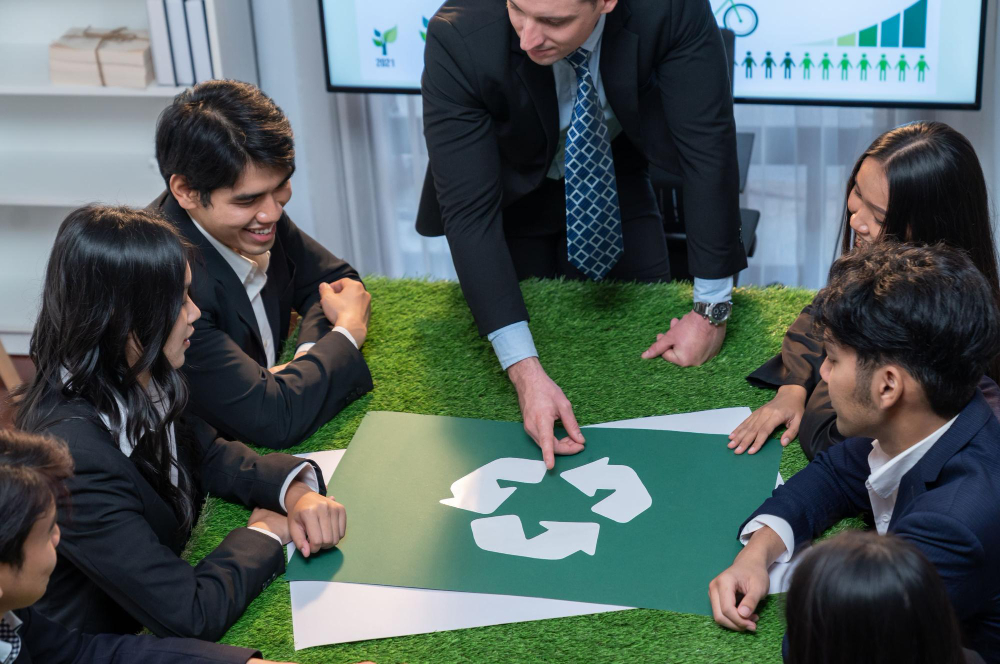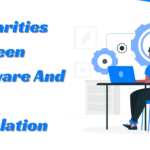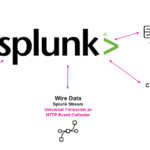Modern Approaches to Reduce Waste in Government Sectors
- 1 The Importance of Waste Reduction in Government Operations
- 2 Exploring Efficient Waste Solutions for Government Agencies
- 2.1 Technology’s Role in Modern Waste Management
- 2.2 Policy Changes to Support Sustainable Waste Management
- 2.3 Challenges and Future Trends in Waste Management for Governments
- 3 Conclusion
- Government agencies can improve waste management through innovative technologies like IoT-enabled bins and data-driven waste tracking.
- Policy changes, such as stricter recycling mandates and sustainable procurement guidelines, are crucial to driving waste reduction efforts.
- Budget constraints and resistance to change remain challenges, but long-term cost savings and environmental benefits make waste reduction initiatives worthwhile.
- Emerging trends like zero-waste government buildings and public-private collaborations offer promising solutions for future sustainability efforts.
Government agencies today face increasing pressure to adopt more sustainable practices, and waste management is one of the key areas where improvement is crucial. Reducing waste helps meet environmental targets and significantly cuts costs, allowing government departments to operate more efficiently.
This post will explore modern waste management approaches that can help governments streamline their operations. From adopting new technologies to implementing more innovative policies, these strategies will enable agencies to reduce waste and promote sustainability while maintaining budget control and enhancing public trust.
The Importance of Waste Reduction in Government Operations
Waste reduction is more than just an environmental concern for government agencies; it is critical in budgeting and operational efficiency. The amount of waste generated by public sector organizations impacts disposal costs, resource use, and overall sustainability. Reducing waste means fewer waste collection, processing, and landfilling expenses—funds that can be reallocated to more critical public services.
Moreover, cutting down on waste is directly tied to government sustainability goals. With increasing global focus on climate action, governments are expected to lead by example in promoting sustainable practices. Public institutions can significantly reduce their carbon footprints by minimizing waste, conserving resources, and decreasing emissions related to waste handling.
On top of these internal benefits, public perception is also greatly influenced by how governments manage their waste. Efficient waste reduction programs can enhance an institution’s reputation, showing citizens that their government is committed to sustainability and responsible use of taxpayer money. When governments show leadership in waste reduction, they set a positive example for communities and businesses to follow.
Exploring Efficient Waste Solutions for Government Agencies
For government agencies looking to modernize their waste management practices, a variety of efficient waste solutions for the public sector are available. Recycling and composting programs are essential tools, but newer innovations, like digital waste tracking and intelligent technologies, can revolutionize how governments handle waste.
Many local governments have already seen success by integrating digital platforms that track waste output in real time, helping agencies identify inefficiencies and reduce unnecessary waste. For example, intelligent bins equipped with sensors can monitor fill levels and notify collection services when they need to be emptied. This prevents overflowing and optimizes collection routes, reducing fuel consumption and associated costs.
Governments can also benefit from comprehensive waste audits that provide detailed insights into the types of waste being produced. These audits help public sector entities develop tailored strategies to reduce specific waste streams, from office paper to food waste in public institutions. Case studies of successful implementations, such as in cities like San Francisco, show how governments can drastically cut waste through technology, recycling initiatives, and public engagement.
Technology’s Role in Modern Waste Management
Technology rapidly transforms waste management practices across government sectors, offering innovative ways to handle waste more efficiently. Intelligent waste management systems, for example, are being adopted by cities and municipalities to streamline operations. These systems often utilize IoT (Internet of Things) devices, such as sensor-equipped bins, which monitor the fill levels of trash containers. When a bin reaches capacity, the system triggers an alert, prompting collection services only when necessary. This reduces the frequency of waste collection trips, lowering fuel costs and minimizing the carbon footprint associated with waste transportation.
Another game-changer for public sector waste management is data analysis tools. Governments can now use predictive analytics to anticipate waste trends, making it easier to plan for periods of high waste production or identify areas with inefficiencies. With data-driven decision-making, government agencies can optimize waste collection schedules and staffing, which cuts operational costs and improves overall service delivery.
Digital waste tracking platforms allow governments to better measure and report on waste reduction efforts. By monitoring real-time data, agencies can evaluate which programs are successful and where improvements are needed. These technological advancements are improving efficiency and helping public institutions meet their sustainability targets with greater accuracy and transparency.
Policy Changes to Support Sustainable Waste Management
Policy changes are essential to support sustainable waste management practices in government sectors. Governments must regularly update their waste management policies to keep up with technological advances and environmental needs. For instance, many local governments have already implemented stricter recycling mandates, which require agencies to meet specific recycling targets or face penalties. These policies incentivize departments to reduce waste and push public agencies toward innovative solutions.
In addition to recycling mandates, governments can introduce policies that incentivize departments that excel in waste reduction. For example, offering financial rewards or recognition to agencies implementing successful waste management strategies can encourage the widespread adoption of best practices. By recognizing and rewarding success, governments can foster a culture of sustainability within public institutions.
Another critical policy change is the integration of sustainable procurement guidelines. Governments should prioritize purchasing products that are either recyclable or made from recycled materials. This can reduce the waste generated at the source and support broader environmental goals. Policy shifts like these have already proven successful in cities such as Seattle, where public sector waste has significantly decreased due to a combination of regulatory and incentive-based approaches.
Challenges and Future Trends in Waste Management for Governments
While there is undeniable progress in waste management technology and policies, government agencies still face significant challenges. Budget constraints are often one of the biggest hurdles, as the initial investment in modern waste management systems can be steep. Governments may struggle to allocate funds for new technologies, even though they offer long-term savings. Additionally, there can be resistance to change within public institutions, where entrenched processes may hinder the adoption of new, more efficient methods.
Another challenge is the sheer scale of waste management in large municipalities. Coordinating waste reduction efforts across multiple departments or facilities, especially in sprawling urban areas, requires financial resources and skilled personnel. Training staff and ensuring compliance with new waste management protocols can be time-consuming, and without proper oversight, these efforts may fall short.
Despite these obstacles, the future of waste management in government sectors looks promising. One emerging trend is the concept of zero-waste government buildings, where waste production is minimized to the point that little to no material goes to landfills. Another future direction includes increased collaboration between government agencies and private waste management companies, where shared resources and expertise lead to innovative solutions. Governments that embrace these trends will be better positioned to meet sustainability goals and address the growing demands of environmentally conscious citizens.
Conclusion
Reducing waste in government sectors is not only about saving money—it’s about impacting sustainability and setting an example for communities to follow. Governments can streamline operations and align with broader environmental goals by exploring modern waste management approaches, from technology-driven solutions to policy reforms.
In the face of budget constraints and operational challenges, government agencies must prioritize waste reduction initiatives. The long-term benefits, from cost savings to improved public perception, make these efforts worth the investment. Governments can lead toward a more sustainable future through intelligent waste management.
















